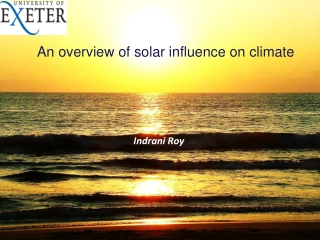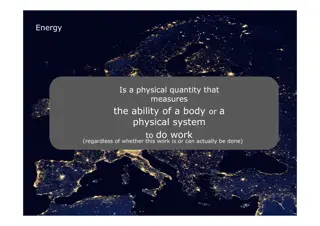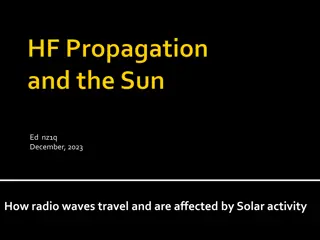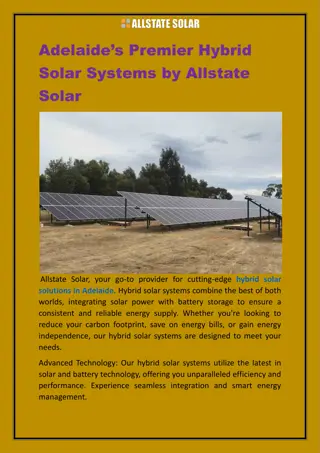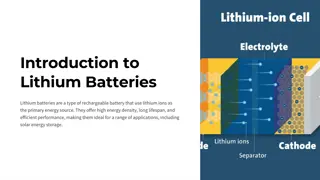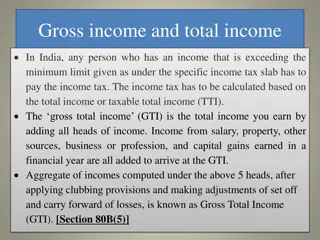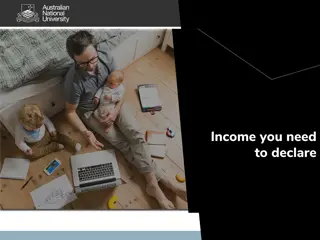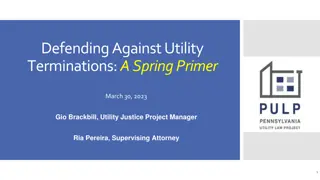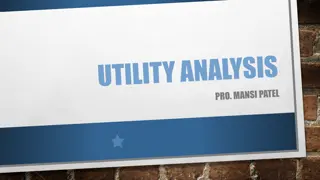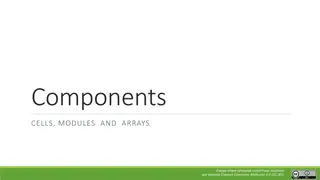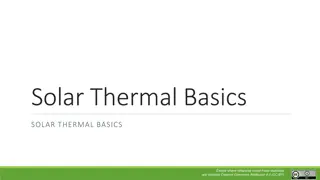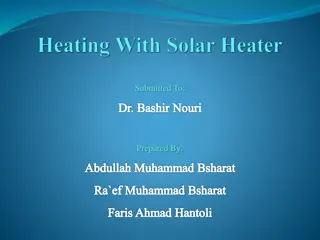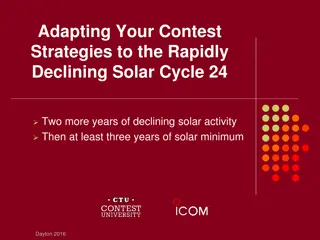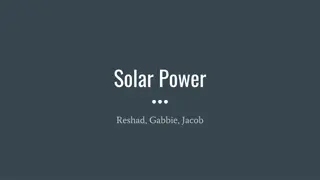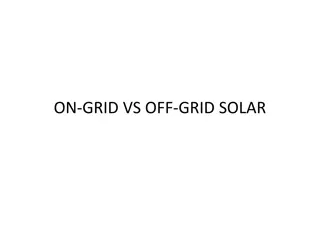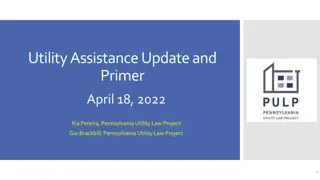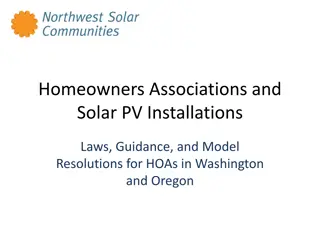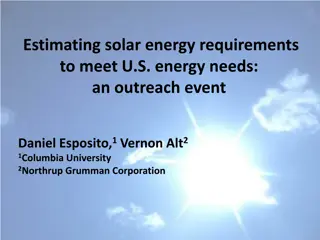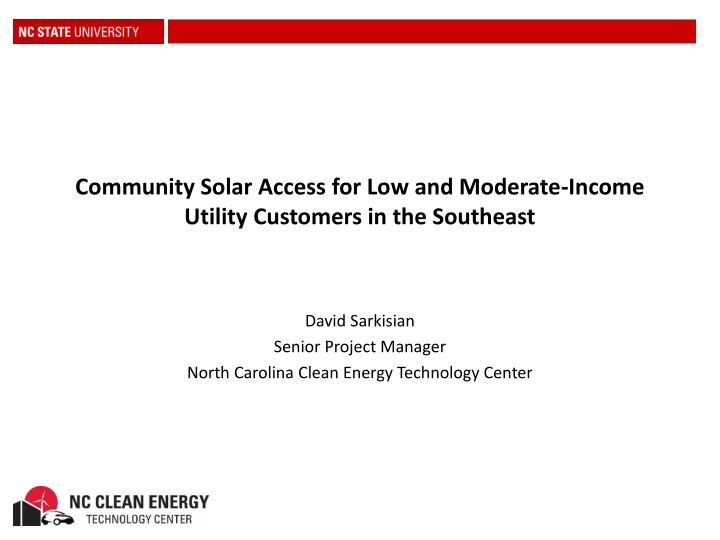
Community Solar Access for Low and Moderate-Income Utility Customers in the Southeast
The NC Clean Energy Technology Center is dedicated to advancing sustainable energy practices by providing support and technical assistance in clean energy technologies. Learn about their work with community solar projects and approaches for increasing benefits for low-income subscribers.
Download Presentation

Please find below an Image/Link to download the presentation.
The content on the website is provided AS IS for your information and personal use only. It may not be sold, licensed, or shared on other websites without obtaining consent from the author. If you encounter any issues during the download, it is possible that the publisher has removed the file from their server.
You are allowed to download the files provided on this website for personal or commercial use, subject to the condition that they are used lawfully. All files are the property of their respective owners.
The content on the website is provided AS IS for your information and personal use only. It may not be sold, licensed, or shared on other websites without obtaining consent from the author.
E N D
Presentation Transcript
Community Solar Access for Low and Moderate-Income Utility Customers in the Southeast David Sarkisian Senior Project Manager North Carolina Clean Energy Technology Center
About the NC Clean Energy Technology Center UNC System-chartered Public Service Center administered by the College of Engineering at North Carolina State University Mission is to advance a sustainable energy economy by educating, demonstrating and providing support for clean energy technologies practices, and policies Objective research, analysis, & technical assistance Manages the Database of State Incentives for Renewables and Efficiency (DSIRE www.dsireusa.org)
NCCETCs Work with Community Solar Community Solar for the Southeast Fayetteville PWC Economic Model Solar-Plus for Electric Cooperatives Community Solar Access for Low and Moderate- Income Utility Customers CARES Act ARPA
Community Solar in the Southeast Few states have community solar enabling legislation or state- mandated utility programs Virginia North Carolina South Carolina Louisiana Electric rates are generally low and policy support for solar incentives is limited Large community solar programs operated by investor-owned utilities in Florida Many cooperative and some municipal utilities offer community solar programs across the region
Approaches for Increasing Community Solar Benefits for Low- Income Subscribers Incorporation of Battery Storage and Resilience Benefits Battery storage can provide additional value streams that may improve the overall economics of a community solar project. Peak Shaving Distribution Deferral Resilience Benefits Ancillary Services Use case for battery storage can be dependent on wholesale contract structure and rates NCCETC and SPECS models
Approaches for Increasing Community Solar Benefits for Low- Income Subscribers Repowering and Scaling In some cases, replacement of older solar installations with newer panels can improve project economics Larger solar installations are generally more cost-effective due to economies of scale. For smaller utilities, the feasibility of large-scale solar installations can be limited by wholesale contract rules and availability of load.
Approaches for Increasing Community Solar Benefits for Low- Income Subscribers Combining with Other Energy Programs Credits from community solar programs can be used to provide cost- effective energy improvements Example: Roanoke Electric Cooperative s Upgrade to Save program
Approaches for Increasing Community Solar Benefits for Low- Income Subscribers Separate Rates Florida utilities offer guaranteed savings rates for lower-income participants Credits (and charges) based on kW rather than kWh May not be allowed for many utilities due to cross-subsidization issues
Approaches for Increasing Community Solar Benefits for Low- Income Subscribers Government and Philanthropic Funding Funding from government and philanthropic sources can be used to enhance the benefits of community solar for lower-income subscribers NC Weatherization, CARES Act, and ARPA funding Roanoke Electric Cooperative philanthropic support for community solar program
Approaches for Increasing Community Solar Benefits for Low- Income Subscribers Opt-Out Program Utilities in New York have begun exploring opt-out community solar program models for lower-income customers Eligible customers are automatically enrolled in the programs and receive bill credits without needing to subscribe Can reduce barriers to entry Important to ensure that participants receive net savings
Thank You! Please send questions to my email at dpsarkis@ncsu.edu

